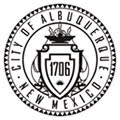
Search
Vanessa Collier
March 13thAlash
March 13thTinsley Ellis - SOLD OUT!
March 14thAlash
March 14thVanessa Collier
March 14thGoodnight, Texas
March 15thTinsley Ellis
March 15thLúnasa
March 16thBackyard Refuge Day
March 21stGwenifer Raymond
March 23rdGwenifer Raymond
March 24thJohn Doe - SOLD OUT!
March 25thArkansauce
March 26thJohn Doe - Second Night!
March 26thA Word with Writers - Erik Larson
March 27thJane Siberry
March 28thTejon Street Corner Thieves
March 29thJane Siberry
March 29thCassie and Maggie
March 30thCassie and Maggie
March 30thRoomful of Teeth
April 6thBab L'Bluz
April 8thRoomful of Teeth
April 8thBab L'Bluz
April 9thThe Wailers
April 10thMarchFourth
April 10thSpyro Gyra
April 12thThe Bones of J.R. Jones
April 14thMoira Smiley: The Big Sing
April 25thMoira Smiley: The Rhizome Project
April 25thAly & AJ (Rescheduled to December 16)
April 26thEric Johnson
April 30thKelly Willis
May 2ndEric Johnson
May 17thGhalia Volt
May 27thTab Benoit
May 28thSteve Earle
August 8thAly & AJ (New Date!)
December 16th
Tickets cost $18 in advance, $23 day of show (plus a $2 service charge). They are also available by phone through Hold My Ticket at 505-886-1251.
This is a standing room only show.
Y La Bamba is an enigmatic indie folk-pop project fronted and led by singer and songwriter Luz Elena Mendoza Ramos. Her group's sound weds Mexican folk styles from mariachi, nueva canciones, and norteño to trippy American folk-rock and dreamy indie pop with songs that center on themes of spirituality, romantic and familial love, and social justice. Mendoza sings in both Spanish and English. (Thom Jurek, All Music Guide)
"Lucha is a symbol of how hard it is for me to tackle healing, live life, and be present," Mendoza Ramos says of the title behind Y La Bamba's new album, which translates from Spanish to English as "fight." It is also a nickname for Luz, which means light. The album explores multiplicity—love, queerness, Mexican American and Chicanx identity, family, intimacy, yearning, loneliness—and chronicles a period of struggle and growth for Mendoza Ramos as a person and artist.
Lucha was born out of isolation at the advent of COVID-19 lockdowns, beginning with a cover of Hank Williams' "I'm So Lonesome I Could Cry," and following Mendoza Ramos as she moved from Portland, Oregon to Mexico City, returning to her parents' home country while revisiting a lineage marred by violence and silence, and simultaneously reaching towards deeper relationships with loved ones and herself. The album reflects "another tier of facing vulnerability," as Mendoza Ramos explains, and is a battle cry to fight in order to be seen and to be accepted, if not celebrated, in every form—anger and compassion, externally and internally, individually and societally. As much as la lucha is about inner work, fighting is borne from survival stemming from social structures designed to uplift dominant groups at the hands of suffering amongst the marginalized.

 prevent_tinymce_removal
prevent_tinymce_removal












